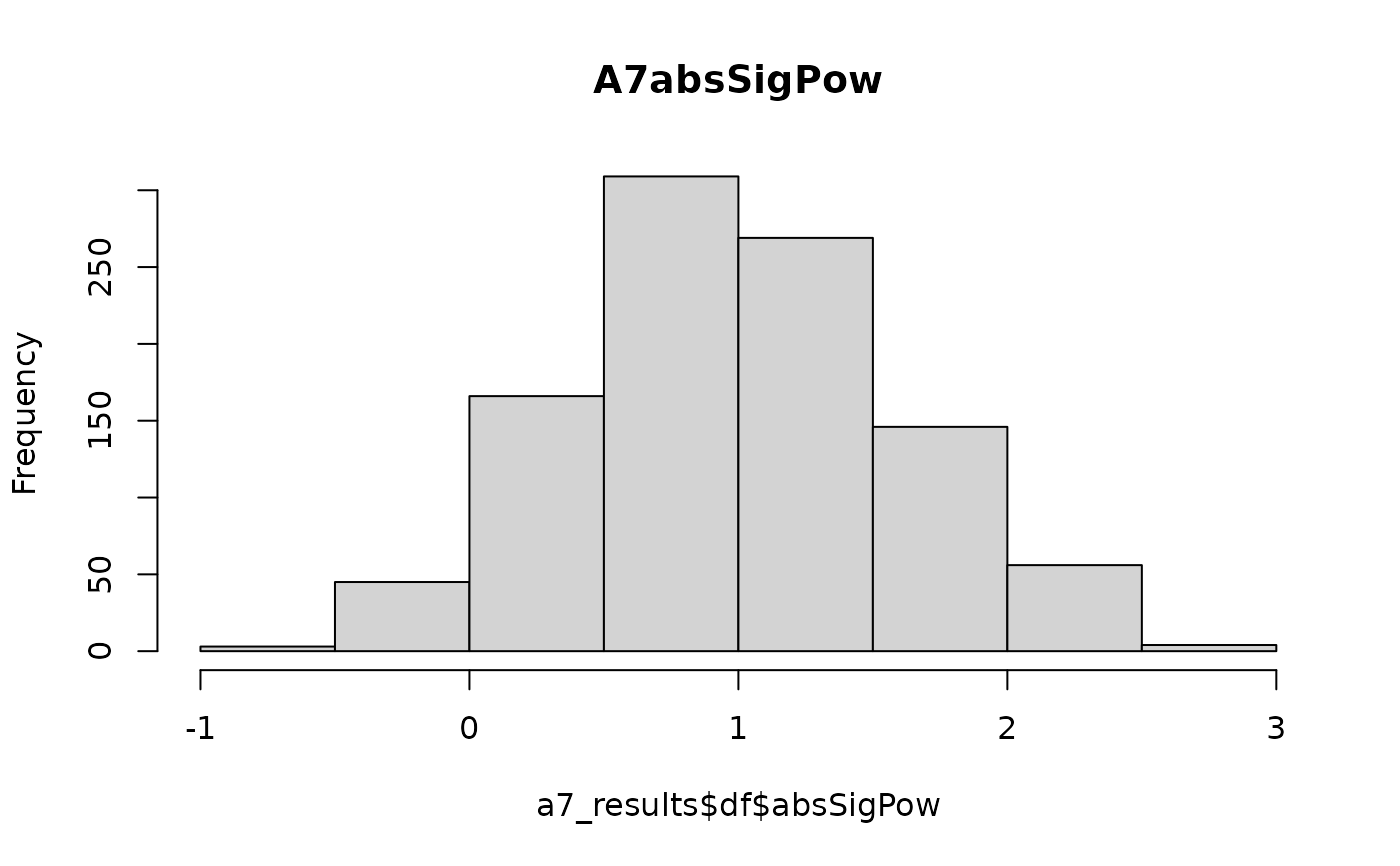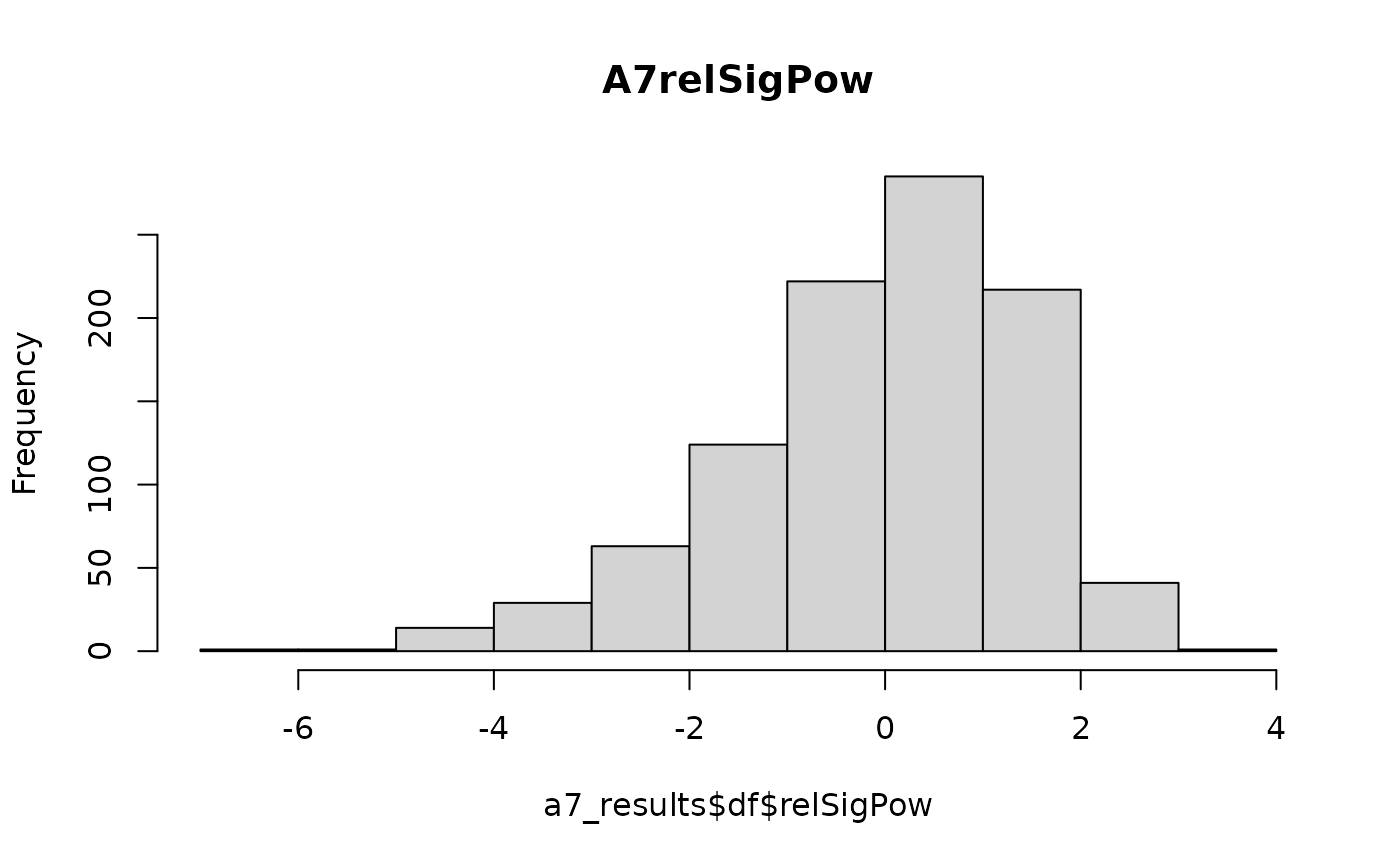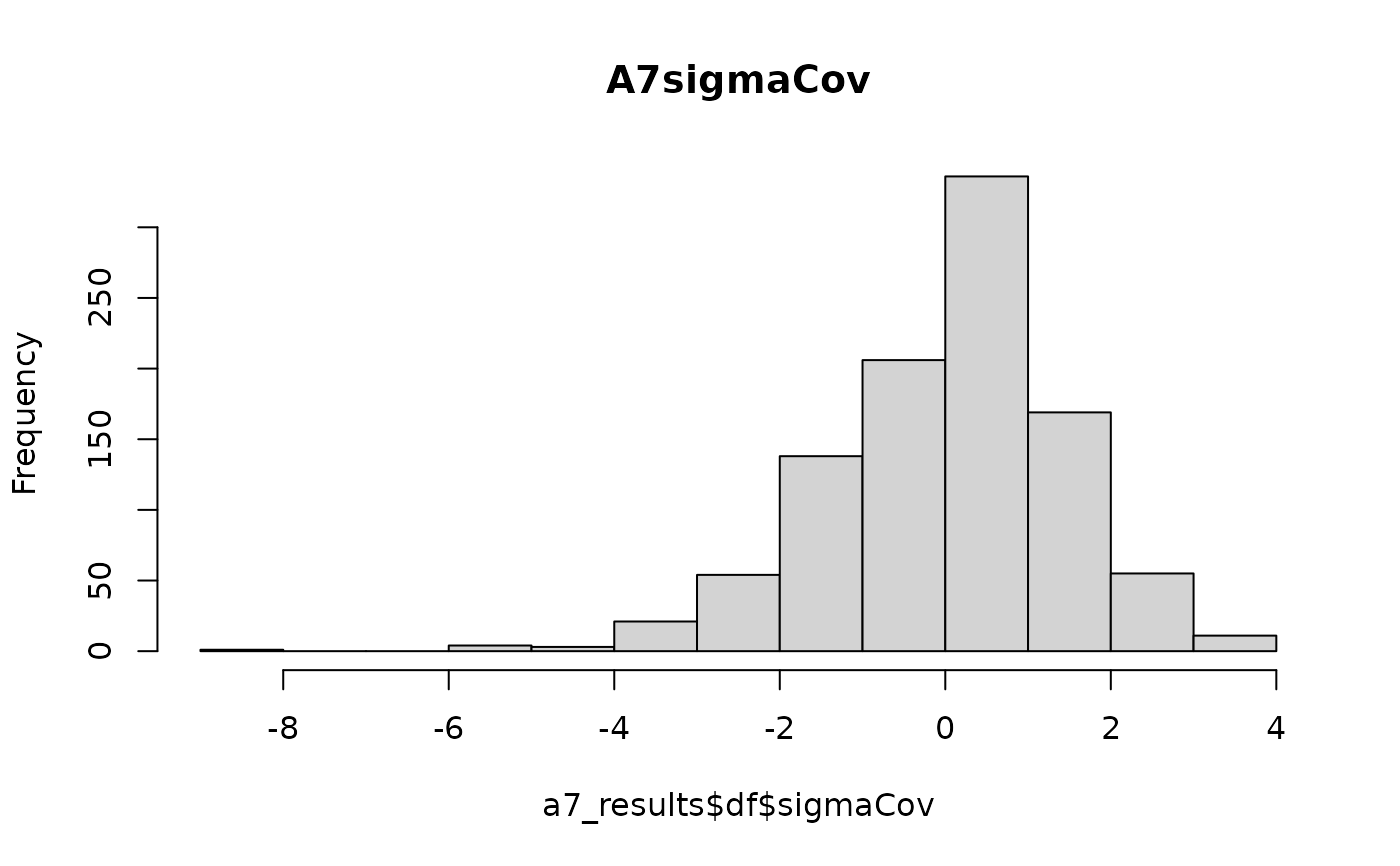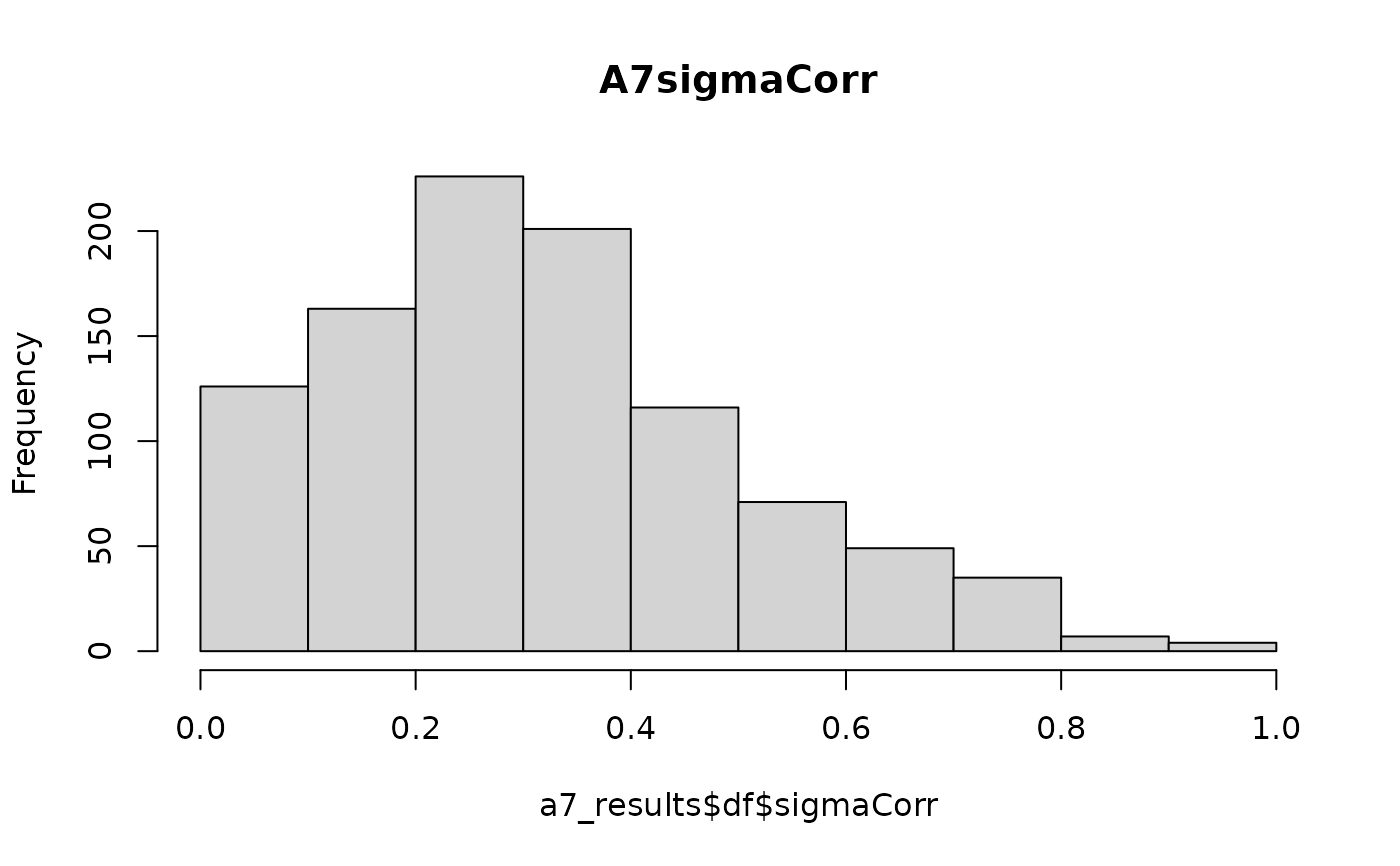A sleep spindle detection algorithm that emulates human expert spindle scoring
a7(
x,
sRate,
window = 0.3,
step = 0.1,
butter_order = 5,
A7absSigPow = 1.25,
A7relSigPow = 1.6,
A7sigmaCov = 1.3,
A7sigmaCorr = 0.69
)Arguments
- x
EEG signal in uV.
- sRate
Sample rate of the signal.
- window
Size of the window in seconds. Default: 0.3
- step
Size of the step between windows in seconds. Default: 0.1
- butter_order
Order of the Butterworth filters. Default: 5
- A7absSigPow
A7absSigPow treshold. Default: 1.25
- A7relSigPow
A7relSigPow treshold. Default: 1.6
- A7sigmaCov
A7sigmaCov treshold. Default: 1.3
- A7sigmaCorr
A7sigmaCorr treshold. Default: 0.69
Value
Detected spindles and associated features.
Details
A sleep spindle detection algorithm based on 4 features computed along segmented signal according to `window` size and `step` size parameters.
1. Absolute sigma power $$A7absSigPow = \log_{10} \left( \sum_{i=1}^{N} \frac{EEG\sigma_{i}^2}{N} \right)$$ 2. Relative sigma power $$A7relSigPow = zscore\left( \log_{10} \left( \frac{PSA_{11-16Hz}}{PSA_{4.5-30Hz}} \right) \right)$$ 3. Sigma covariance $$A7sigmaCov = zscore\left( \log_{10} \left( \frac{1}{N} \sum_{i=1}^{N} \left( EEG_{bf_i} - \mu_{EEG_{bf}} \right) \left( EEG_{\sigma_i} - \mu_{EEG_{\sigma}} \right) \right) \right)$$ 4. Sigma correlation $$A7sigmaCor = \frac{\text{cov}(EEG_{bf}, EEG_{\sigma})}{sd_{EEG_{bf}} * sd_{EEG_{\sigma}}}$$
References
Lacourse, K., Delfrate, J., Beaudry, J., Peppard, P., & Warby, S. C. (2019). A sleep spindle detection algorithm that emulates human expert spindle scoring. In Journal of Neuroscience Methods (Vol. 316, pp. 3–11). Elsevier BV. https://doi.org/10.1016/j.jneumeth.2018.08.014
Examples
tryCatch({
fpath <- paste0(tempdir(),"c3m2_n2_200hz_uv.csv")
download.file(
url = "https://rsleep.org/data/c3m2_n2_200hz_uv.csv",
destfile = fpath)
# Read only a sample of the EEG signal
s = read.csv(fpath,header = FALSE)[,1][25000:45000]
file.remove(fpath)
a7_results = a7(s, 200)
# Plot the first detected spindle
data = data.frame(x=s,index=seq_along(s))
a = a7_results$spindles$idxStart[1]
b = a7_results$spindles$idxEnd[1]
data = data[(data$index <= (b+600)) & (data$index >= (a-600)), ]
library(ggplot2)
ggplot(data, aes(x = index, y = x)) +
geom_line() +
geom_line(data = subset(data, index >= a & index <= b), aes(x = index, y = x), color = "red") +
labs(x = "Signal index", y = "C3-M2") +
theme_minimal()
# Visualise features distribution
hist(a7_results$df$absSigPow,main = "A7absSigPow")
hist(a7_results$df$relSigPow,main = "A7relSigPow")
hist(a7_results$df$sigmaCov,main = "A7sigmaCov")
hist(a7_results$df$sigmaCorr,main = "A7sigmaCorr")
}, error = function(e) {
print("Error executing this example, check your internet connection.")
})



